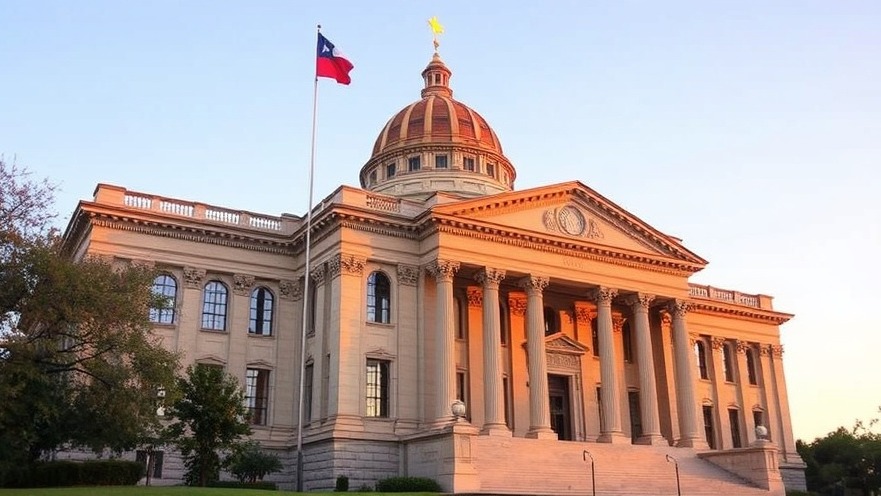
Understanding Texas' Special Legislative Session: Key Issues at Hand
The Texas Legislature convenes for a special session starting on July 21, 2025, focusing on several pressing concerns following Governor Greg Abbott's veto of numerous bills from the spring legislative session. This period will last up to 30 days, during which lawmakers can only address agenda items specified by the governor. Here’s a breakdown of the key issues they will tackle, particularly the regulation of THC—a psychoactive component found in both hemp and marijuana—that has divided opinion in the state.
Why a Special Session?
During the regular session, lawmakers attempted to implement a comprehensive ban on consumable hemp products like vapes and gummies. This measure was met with opposition, especially after Abbott vetoed it, opting instead for a special session to re-examine THC regulations. The ongoing discussion centers around legislative loopholes that allowed a burgeoning industry of THC products to emerge across Texas. With concerns voiced about health risks associated with THC, the ongoing debate is set against the backdrop of health advocates cautioning against hastily crafted regulations that could have a wider impact on medical marijuana access.
The Broader Agenda: Flood Preparedness and Redistricting
Apart from the THC regulation, Abbott's agenda for the session encompasses several high-stakes issues. In the wake of devastating floods in Central Texas earlier this month, lawmakers are urged to prioritize emergency preparedness, which includes improving flood warning systems and emergency communication. Statistically, Texas faces significant weather challenges, emphasizing the essential need for a robust response strategy. This planning is crucial not only for current residents but also for preserving the safety and welfare of those in future flood-affected areas.
Redrawing Congressional Districts: The Politics Behind the Changes
Amidst pressures from former President Donald Trump's political team, Abbott has also set forth a mandate to redraw the state’s congressional districts. This redistricting is critically timed ahead of the 2026 midterms, highlighting the strategic importance of precise district designations. This political maneuvering has stirred concern among various groups about potential gerrymandering and its impact on representation within Texas's diverse population.
Conservative Priorities Take Center Stage
As part of the legislative agenda are several conservative priorities that did not pass during the regular session, including measures to restrict bathroom use based on assigned gender at birth and banning municipal lobbying. These controversial items reflect a governance approach that appeals to a significant voter base while raising discussions about civil liberties and local governance. The legislative environment is clearly reflective of a broader national discourse surrounding social values and laws.
Public Reactions and Implications
The public reaction to these focal issues has been profoundly diverse. Advocates for the hemp industry argue that excessive regulation could damage a burgeoning economic sector, while health advocates insist on laws that prioritize public health. The discourse in Texas indicates a deeper engagement with issues that resonate strongly amid current national debates on health, safety, and identity politics. As discussions unfold, local communities are left to consider the implications these legislative moves will have on their day-to-day lives.
Preparing for the Next 30 Days
With a special session set to cover urgent topics, citizens are encouraged to stay informed and engaged with how decisions made in Austin will impact various aspects of Texas life, from healthcare access to emergency management. The coming days promise critical developments that could define the Texan political landscape for years to come. All interested parties should pay close attention to the outcomes of these deliberations as they unfold.
In summary, Abbott’s special legislative session signifies an opportunity for Texans to influence the course of state policy during a pivotal time in the nation’s political climate. Understanding these movements and their implications is essential for fostering informed discussions within the community.
 Add Element
Add Element  Add Row
Add Row 



Write A Comment